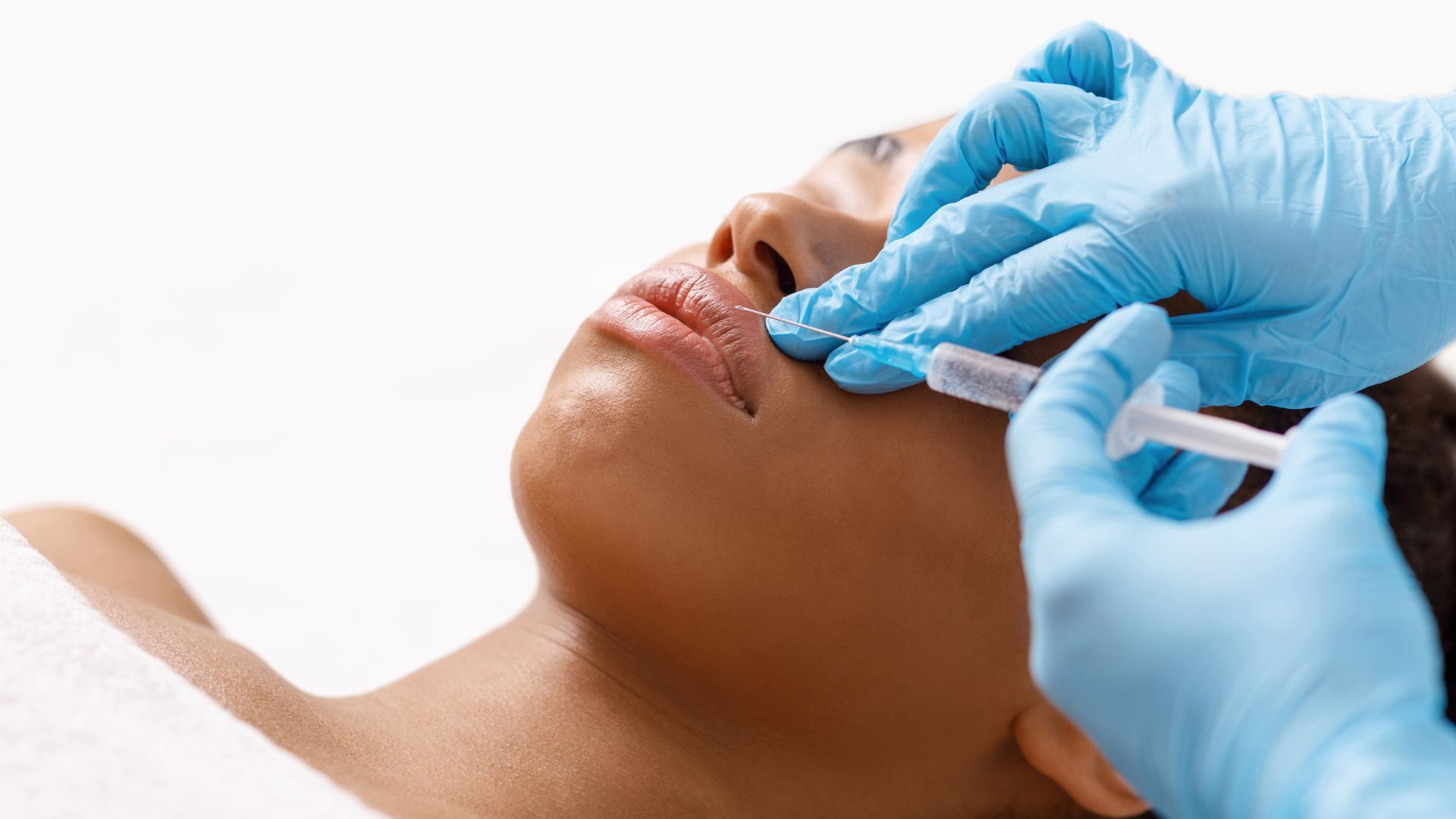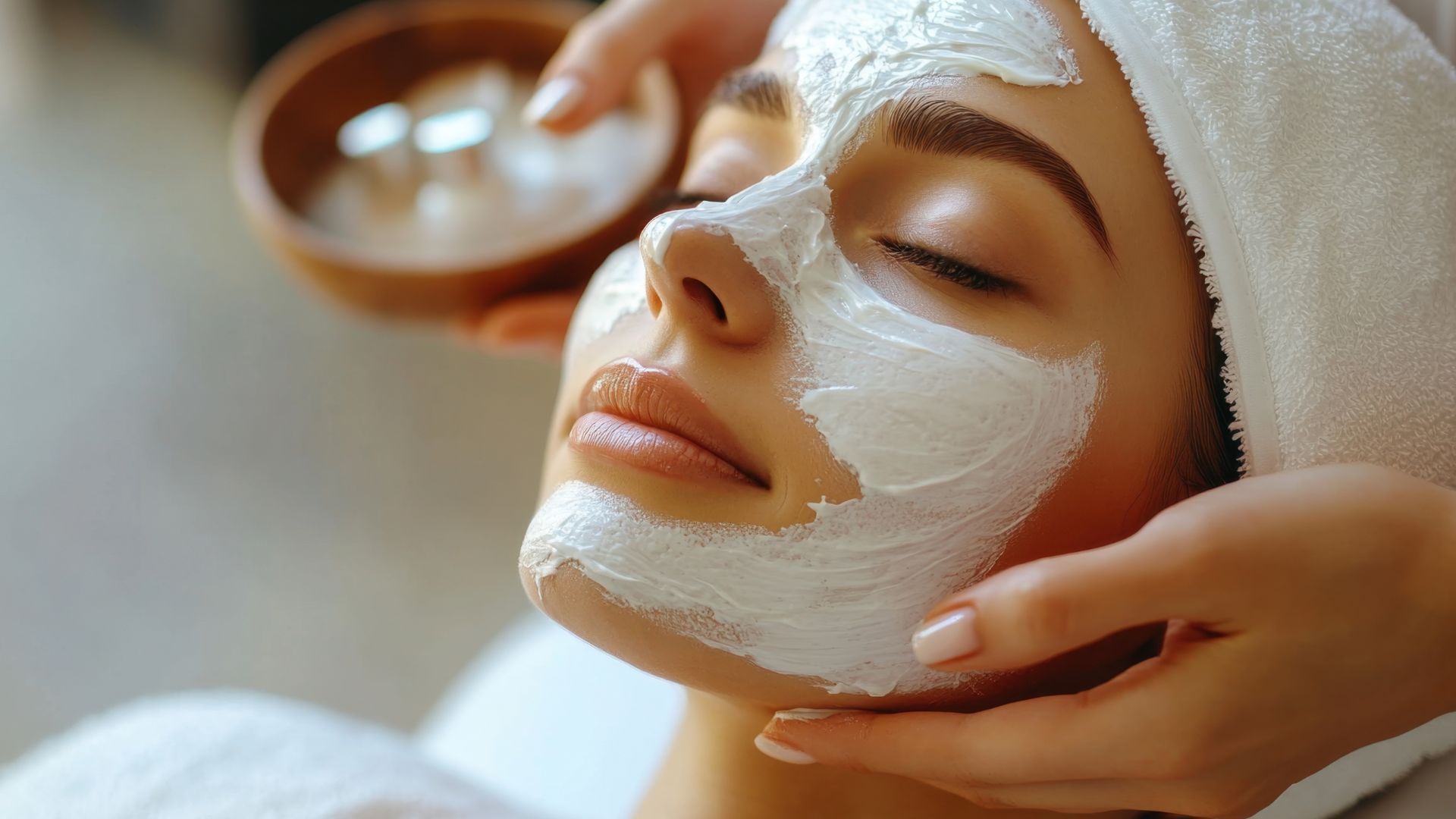Body Scientific Aesthetics
Your Guide to Chemical Peel Treatments in Towson MD
Chemical Peel Treatments in Towson, MD: What to Expect
Key Takeaways
- Chemical peel treatments use exfoliating acids to remove damaged skin layers and promote new cell growth.
- They improve skin texture, reduce fine lines, and diminish acne scars and hyperpigmentation.
- Proper preparation and aftercare are key to maximizing benefits and minimizing side effects.
- Costs vary according to peel type, provider expertise, and treatment depth.
Chemical peel treatments are popular aesthetic services offered by Towson, MD clinics and
med spa Towson MD to address issues such as acne, sun damage, and aging. By applying a chemical solution that exfoliates the skin, these treatments reveal a brighter, smoother complexion and stimulate collagen production and cell turnover. Various peel options allow treatments to be tailored for either superficial improvements or more intensive corrections.
What Are Chemical Peel Treatments and How Do They Work?
Chemical peel treatments involve applying a solution containing acids—such as glycolic, lactic, or trichloroacetic acid (TCA)—to the skin. This solution exfoliates the outer layer of dead skin cells and promotes the growth of new, healthy cells. As the skin heals, increased collagen and elastin production work together to restore a smoother and rejuvenated appearance. In Towson, MD, these procedures are administered by skilled professionals to address specific skin concerns safely and effectively.
What Is a Chemical Peel and Its Purpose?
A chemical peel is a non-invasive skin rejuvenation procedure designed to remove damaged outer layers. Its main purpose is to improve skin clarity by reducing fine lines, acne scars, and hyperpigmentation. Clinicians in Towson, MD recommend chemical peels as part of a broader aesthetic strategy to help patients achieve more youthful and radiant skin.
How Do Chemical Peels Improve Skin Texture and Appearance?
By removing aged and damaged cells, chemical peels allow smoother, more evenly pigmented cells to surface. This controlled exfoliation diminishes fine lines, sun damage, and acne scars while triggering the skin’s natural repair process, including collagen and elastin production. Patients typically enjoy a more even tone and improved clarity following their treatments.
What Types of Chemical Peels Are Offered in Towson, MD?
Towson, MD, clinics offer a range of chemical peels to suit different skin needs:
Superficial peels: Use mild acids like glycolic or lactic acid for a light refresh with minimal downtime.
Medium peels: Often employ TCA to address moderate imperfections like wrinkles and pigmentation issues.
Deep peels: Use stronger acid formulations for severe skin damage, though these require longer recovery times. This variety enables providers to customize treatments based on skin type, sensitivity, and desired outcomes.
What Are the Benefits of Chemical Peel Treatments in Towson, MD?

How Do Chemical Peels Help With Acne and Acne Scars?
Can Chemical Peels Reduce Fine Lines and Wrinkles?
How Do Chemical Peels Improve Skin Tone and Texture?
What Are the Effects on Hyperpigmentation and Sun Damage?
How Should You Prepare for a Chemical Peel Treatment?

Proper preparation is essential for optimal results. Patients should follow a regimen before their treatment that may include pre-peel consultations, using recommended topical agents, and avoiding sun exposure to reduce sensitivity. This preparation ensures the peel is applied evenly and effectively.
What Pre-Treatment Steps Are Recommended?
Common recommendations include using retinoid or glycolic acid creams days before the peel and avoiding harsh exfoliants. A patch test during consultation can also help determine skin sensitivity and minimize the risk of adverse reactions.
Which Skin Types Are Suitable for Chemical Peels?
Chemical peels can be adjusted for many skin types—from fair to moderately pigmented—but individuals with darker skin or highly sensitive skin may require milder variants to avoid post-inflammatory hyperpigmentation.
What Are the Contraindications to Chemical Peels?
Candidates with active skin infections, severe acne, or a history of scarring disorders, along with those recently using strong exfoliating agents, may not be ideal for a chemical peel. Thorough screening helps ensure that only suitable candidates receive treatment.
How to Choose the Right Chemical Peel for Your Skin Type?
A critical skin evaluation by a qualified provider is needed to select the best peel. Factors such as skin type, age, sensitivity, and specific concerns like pigmentation or wrinkle depth guide the choice between superficial, medium, or deep peels.
How Does What Happens During a Chemical Peel Procedure in Towson, MD?
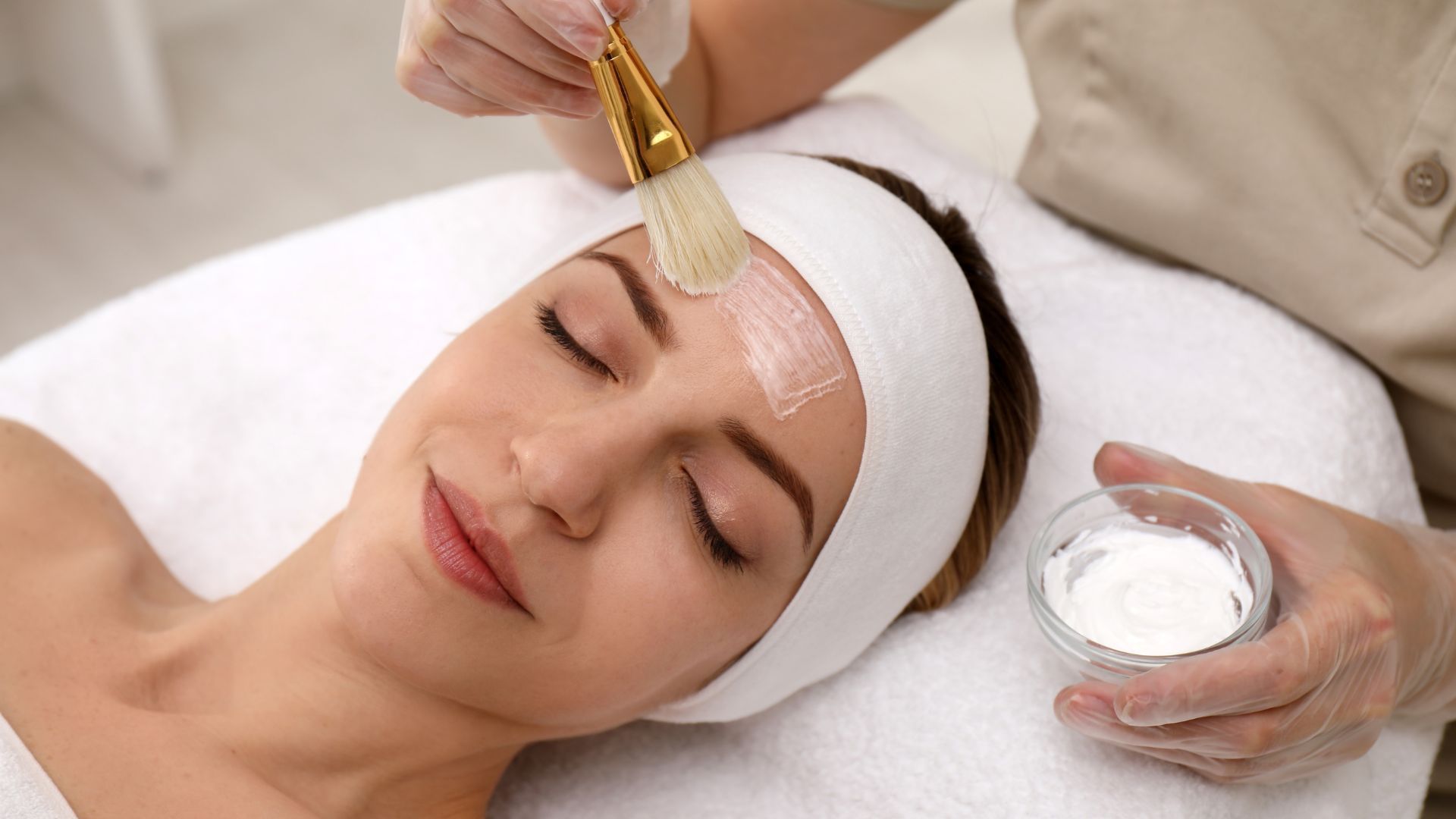
During the procedure, clinicians first cleanse the skin and then evenly apply the chemical solution. The treatment’s duration varies with the type and area being treated. Post-procedure, patients receive instructions to care for their skin to ensure a smooth recovery.
What Are the Step-by-Step Procedures of a Chemical Peel?
1. Preparation: The skin is cleansed; a pre-treatment solution may be applied.
2. Application: The chemical peel solution is spread evenly over the targeted area.
3. Reaction Time: The solution remains on the skin for a specific duration.
4. Neutralization: A neutralizing agent is applied to stop the chemical process.
5.
Aftercare: A moisturizer or cooling gel is used to soothe the skin. Each step is carefully controlled to maximize benefits and minimize side effects.
How Long Does a Chemical Peel Session Take?
Sessions typically last between 30 and 60 minutes, depending on the peel type, treatment area, and individual skin condition.
Is the Procedure Painful or Discomforting?
Most patients experience only minor stinging or tingling during application, which usually subsides quickly. Topical anesthetics may be used to further reduce any discomfort.
Who Performs Chemical Peels at Towson Clinics?
Chemical peels in Towson, MD, are conducted by experienced dermatologists or licensed skincare professionals, ensuring that each treatment meets high standards of safety and effectiveness.
What Are the Risks, Side Effects, and Aftercare of Chemical Peels?
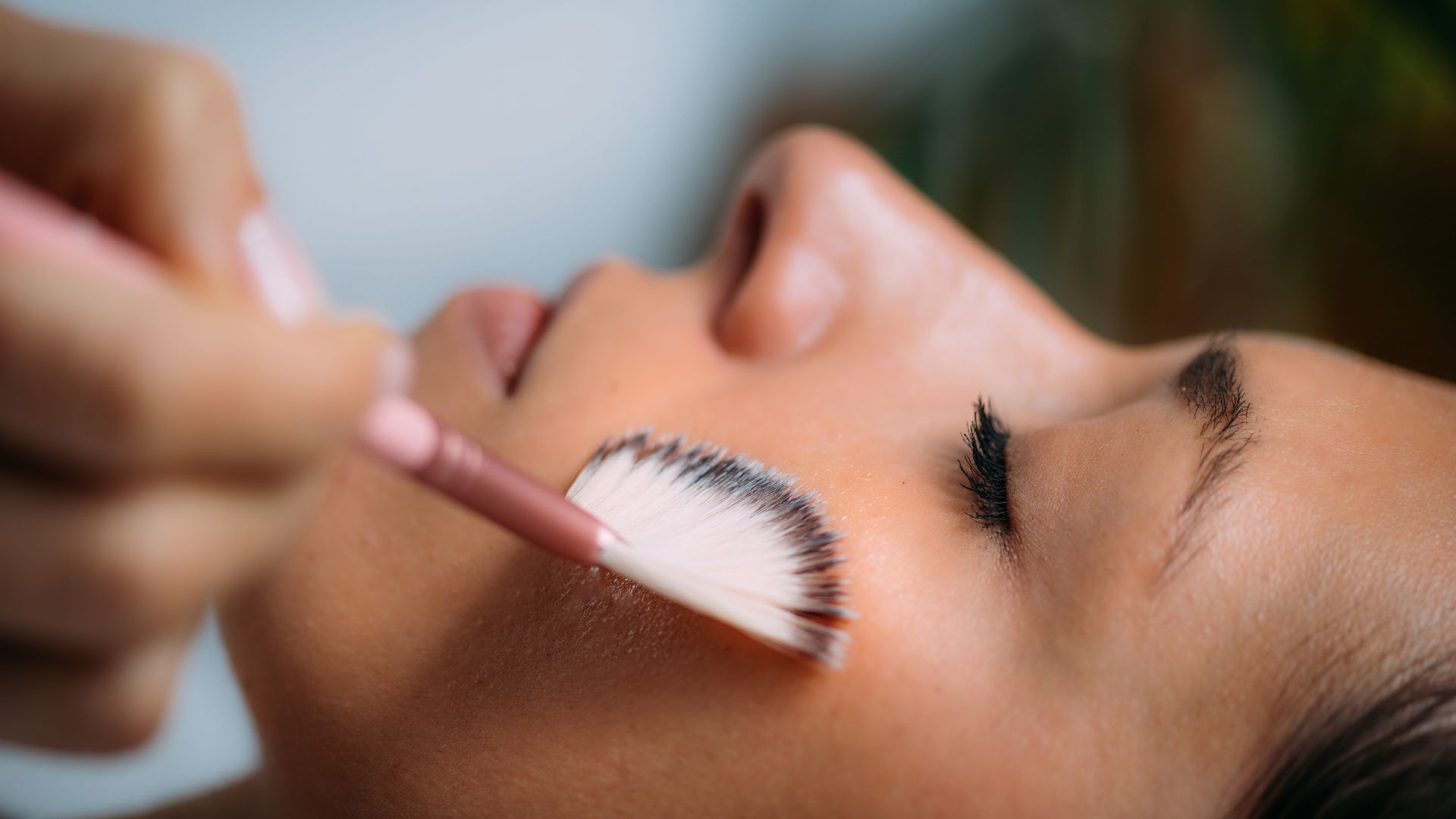
While generally safe, chemical peels can cause temporary redness, peeling, or mild irritation. In rare cases, complications such as infection or hyperpigmentation may occur. Adhering to aftercare instructions is critical in managing these side effects.
What Common Side Effects Should You Expect?
After a peel, patients may notice redness, tightness, or peeling, sometimes accompanied by slight itching or burning. These effects typically resolve within a few days as new skin forms.
What Are Rare but Possible Complications?
Rare complications—such as prolonged redness, scarring, or infection—can occur, especially if aftercare instructions are not followed. Proper screening and treatment selection help mitigate these issues.
How Should You Care for Your Skin After a Chemical Peel?
Post-treatment care includes using gentle cleansers, avoiding abrasive exfoliants, moisturizing regularly, and applying high-SPF sunscreen to protect the sensitive new skin from UV damage.
How Long Is the Recovery Time for Different Peel Types?
Recovery times vary: superficial peels typically take 3–5 days, medium-depth peels up to 7–10 days, and deep peels may require an extended period of care.
How Much Do Chemical Peel Treatments Cost in Towson, MD?
Costs depend on the type of peel, treatment area, and provider expertise. Superficial peels are generally less expensive compared to medium or deep peels, which require longer recovery periods and are more intensive.
What Factors Influence the Cost of Chemical Peels?
Pricing is influenced by the chemical used, treatment area size, number of sessions required, and bundled aftercare products, along with local market trends and clinic reputation.
How Does Pricing Compare Among Glycolic, Salicylic, and TCA Peels?
Glycolic and salicylic peels (typically $100–$220) are less costly and require minimal downtime, while TCA peels (around $250–$500) are more expensive due to their deeper treatment and extended recovery period.
Are There Consultation Fees or Package Deals Available?
Many Towson, MD, clinics charge a consultation fee—which may be deducted from the total cost if treatment is pursued—and offer package deals that provide more cost-effective pricing for multiple sessions.
How to Choose a Provider Based on Cost and Quality?
Patients should consider the provider’s reputation, patient testimonials, and overall expertise. A thorough consultation helps balance cost and quality, ensuring safe and effective treatment.
What Can You Expect From Chemical Peel Results and Patient Experiences?
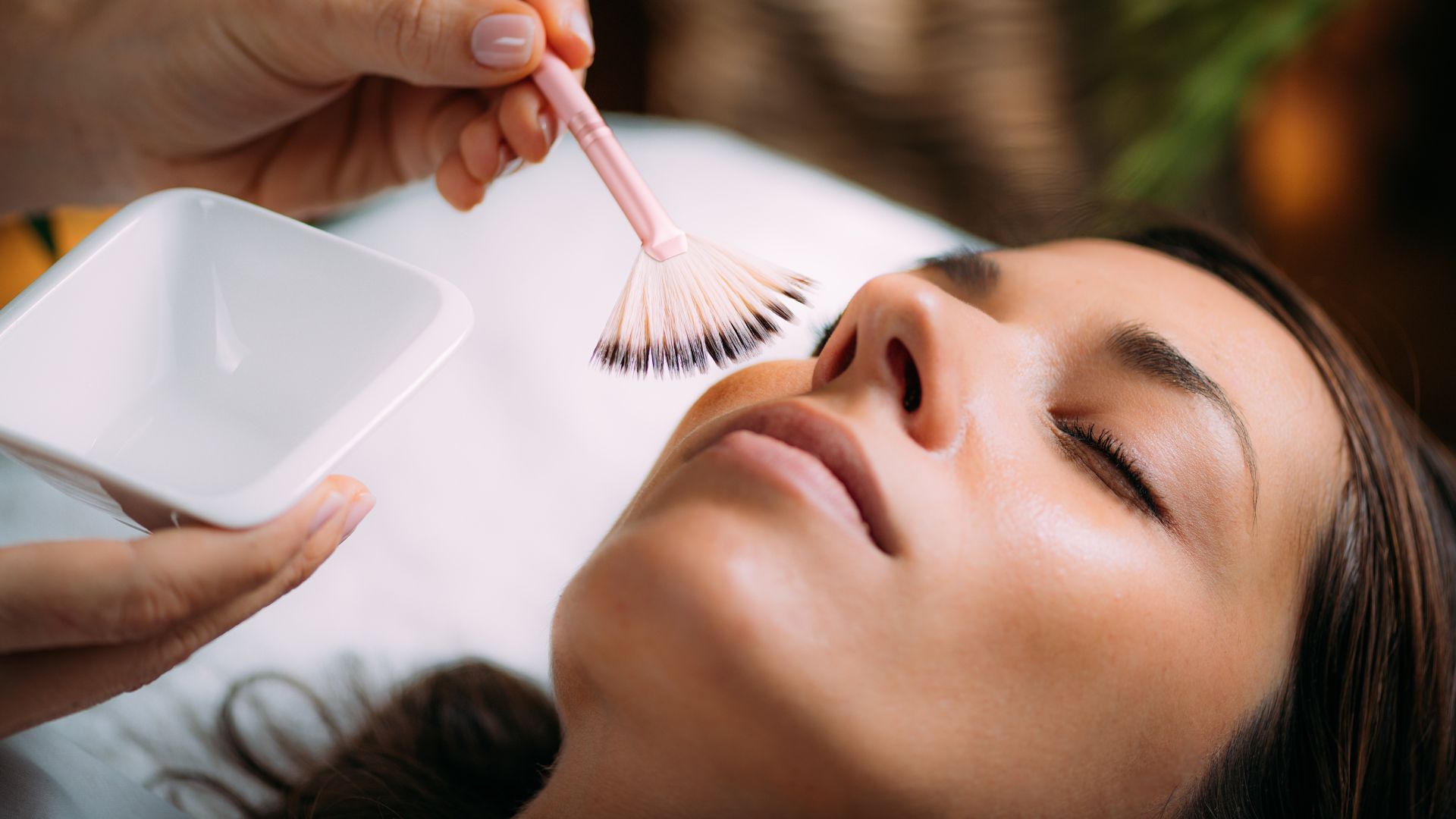
Patients typically report a noticeable improvement in skin clarity, tone, and texture after chemical peel treatments. Reduced acne scars, fewer fine lines, and more even pigmentation contribute to a more youthful appearance. Positive patient testimonials and repeat visits underscore the treatment’s effectiveness.
What Are the Typical Before and After Results of Chemical Peels?
Before treatment, the skin may show signs of aging and uneven texture. Following a series of peels, many patients observe smoother, more uniformly toned skin with reduced discoloration and visible scars.
How Long Do Results Last and When to Schedule Follow-Ups?
Results vary by peel type and individual skincare routines. Superficial peels may require maintenance every 3–6 months, while medium-depth treatments can offer improvements that last up to a year or more. Regular follow-ups help maintain optimal skin health.
What Do Patients Say About Their Chemical Peel Treatments in Towson?
Feedback often highlights improved skin texture, reduced acne scars, and enhanced radiance. Patients appreciate the minimal discomfort during treatment and the supportive aftercare provided by experienced practitioners.
How to Book a Consultation for Chemical Peel Treatments in Towson, MD?
Booking a consultation is straightforward—patients can contact local Towson, MD aesthetic clinics by phone or online. A detailed skin analysis is performed during the consultation to determine the most appropriate peel and develop a personalized treatment plan.
Final Thoughts
Chemical peel treatments in Towson, MD, offer an effective solution for improving the skin’s texture, tone, and overall appearance. By targeting fine lines, acne scars, and hyperpigmentation, these treatments rejuvenate the skin and boost patient confidence. With careful preparation, personalized treatment strategies, and diligent aftercare, lasting, visible improvements are achievable. Those considering a chemical peel should consult certified professionals to determine the best approach for their skin type and concerns.
Frequently Asked Questions
Q: What is a chemical peel used for?
A: It exfoliates the skin to reduce acne scars, fine lines, and hyperpigmentation, thereby improving overall texture and appearance.
Q: How long does the recovery process usually take?
A: Recovery varies—superficial peels typically require 3–5 days, while medium peels may need 7–10 days.
Q: Are chemical peel treatments safe for sensitive skin?
A: They can be safe when performed with proper evaluation and customized formulations. Those with highly sensitive skin might need milder options.
Q: Can chemical peels treat sun damage effectively?
A: Yes, they help remove sun-damaged skin layers and promote regeneration for a clearer, more even skin tone.
Q: How often should one schedule follow-up sessions?
A: Superficial peels may be repeated every 3–6 months, while deeper peels are scheduled less frequently.
